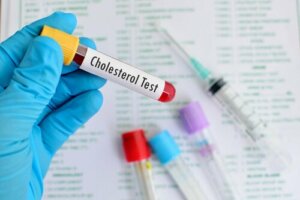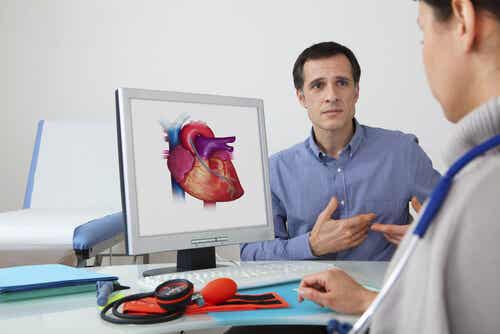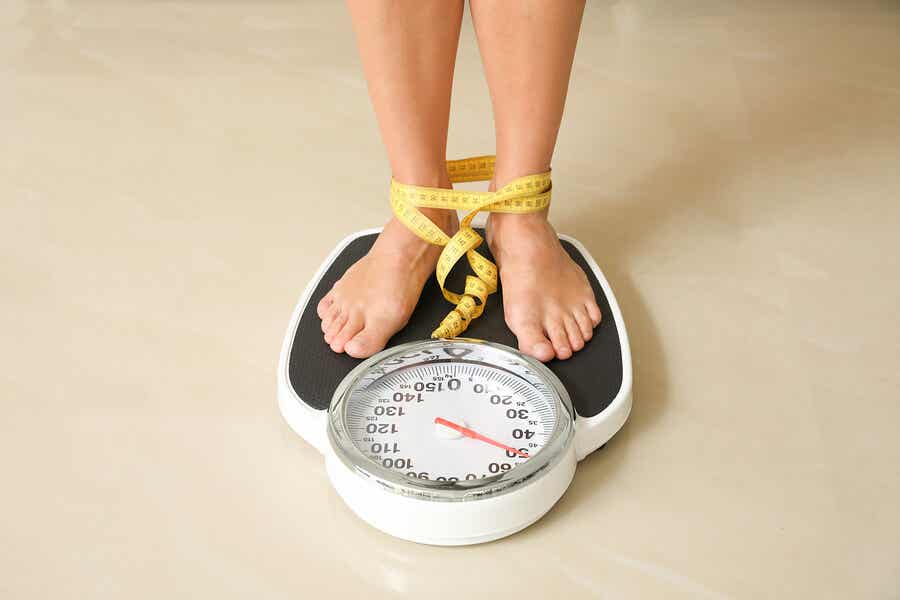HDL and LDL Cholesterol: Everything You Need to Know


Written and verified by the doctor Leonardo Biolatto
Patients with heart problems commonly talk about HDL and LDL cholesterol. Anyone who’s had a heart attack knows that they must increase some blood values and lower others to protect their heart.
However, not only heart patients are familiar with these terms. Worldwide prevention campaigns have paid off, as increasingly more people now understand how cholesterol works and its effects on the arteries.
Both HDL and LDL cholesterol are parts, or portions, of total body cholesterol. They’re fatty substances that cells require for metabolism. As such, we don’t need to eliminate cholesterol entirely but control it instead.
Based on what can be measured in a blood test, cholesterol is divided into three categories:
- HDL. The fat that cleans the arteries without clogging them. It’s known as “good” cholesterol.
- LDL. This is the type that deposits on the arterial walls. It’s known as “bad” cholesterol.
- Triglycerides. A particular fat found in cells and in the blood that varies depending on a person’s diet.
Total cholesterol is the sum of HDL and LDL cholesterol.
What’s HDL cholesterol?
As we already explained above, HDL and LDL cholesterol aren’t the same. The so-called “good” cholesterol or high-density lipoprotein (HDL) cholesterol carries portions of fat from different parts of the body to the liver. In other words, it “cleans” the arteries.
You should seek to elevate it, as a higher proportion of HDL ensures improved cardiovascular work. Contrary to what’s usually believed, you must elevate the levels of this cholesterol.
Unfortunately, the use of certain drugs due to chronic conditions can decrease this substance. For example, this almost inevitably occurs to those who take beta-blockers. Benzodiazepines and progestogens, among other drugs, also affect HDL cholesterol levels.
HDL and LDL cholesterol are addressed similarly since, in general, what increases “good” cholesterol tends to lower “bad” cholesterol. Nevertheless, tobacco is known to affect HDL more than LDL.

Keep reading to learn more: A Guide to Help You Watch Your Cholesterol Levels
What’s LDL cholesterol?
LDL stands for low-density lipoprotein, commonly known as “bad” cholesterol. It’s harmful because it tends to settle on the inner walls of the arteries and blocks blood flow.
This cholesterol can cause arteriosclerosis. The atheromatous plaque contains fat that this lipoprotein carries there. Cardiologists insist on lowering its biochemical values to prevent heart attacks and angina pectoris.
Ultimately, higher LDL cholesterol levels are linked to a lower oxygen flow to vital organs. When the atheromatous plaque ruptures after reaching its breaking point, acute events occur.
In terms of laboratory test figures:
- Less than 100 milligrams per deciliter (mg/dL) of LDL is healthy
- Up to 130 milligrams per deciliter is acceptable
- Higher levels are risky and the risk increases even more if they’re above 190
Find out more here: A Great Morning Drink to Reduce Your Triglyceride Levels
Increase HDL and lower LDL cholesterol levels
You can take certain preventive measures to increase HDL and lower LDL cholesterol. This isn’t exclusive to heart patients but should be routine for anyone in order to reduce cardiovascular risk.
The key points are the following:
- Weight control. An overweight person, in addition to the cardiac risk associated with their obesity, can suffer elevated LDL cholesterol levels. The good news is that lowering body mass index also reduces “bad” cholesterol.
- Exercise. Unlike a sedentary lifestyle, exercise increases HDL cholesterol. Exercise consumes body fat to produce the energy the muscles need. This removes circulating cholesterol from the arteries, helping to clean them.

- Healthy foods. Although diet is important in controlling cholesterol, it isn’t decisive, as experts previously believed. Studies on the Mediterranean diet suggest that nutritional balance stimulates the work of HDL cholesterol and makes it transport fat more effectively. Likewise, excessive consumption of saturated fat elevates LDL cholesterol above acceptable levels.
- Tobacco. One of the many negative effects of smoking is that it reduces HDL cholesterol levels.
Control your cholesterol levels to live a better life
A sedentary lifestyle and the ultra-processed foods you eat, among other factors, affect your quality of life. This fast-paced life we have affects good health.
Therefore, you have to make an effort to change your habits, increasing HDL and decreasing LDL. This way, you’ll live a longer and better life.
All cited sources were thoroughly reviewed by our team to ensure their quality, reliability, currency, and validity. The bibliography of this article was considered reliable and of academic or scientific accuracy.
- Echeverría, Guadalupe, and Attilio Rigotti. “Impacto de la dieta mediterránea sobre las lipoproteínas de alta densidad.” Revista chilena de cardiología 36.2 (2017): 136-143.
- Cordovilla, Darwin O., Laura Llambí, and Selva Romero. “Tabaquismo y niveles de colesterol HDL en pacientes que asisten a una unidad de prevención secundaria cardiovascular.” Revista Uruguaya de Medicina Interna 4.1 (2019): 23-31.
- Zárate, Arturo, et al. “Colesterol y aterosclerosis. Consideraciones históricas y tratamiento.” Archivos de cardiología de México 86.2 (2016): 163-169.
This text is provided for informational purposes only and does not replace consultation with a professional. If in doubt, consult your specialist.








